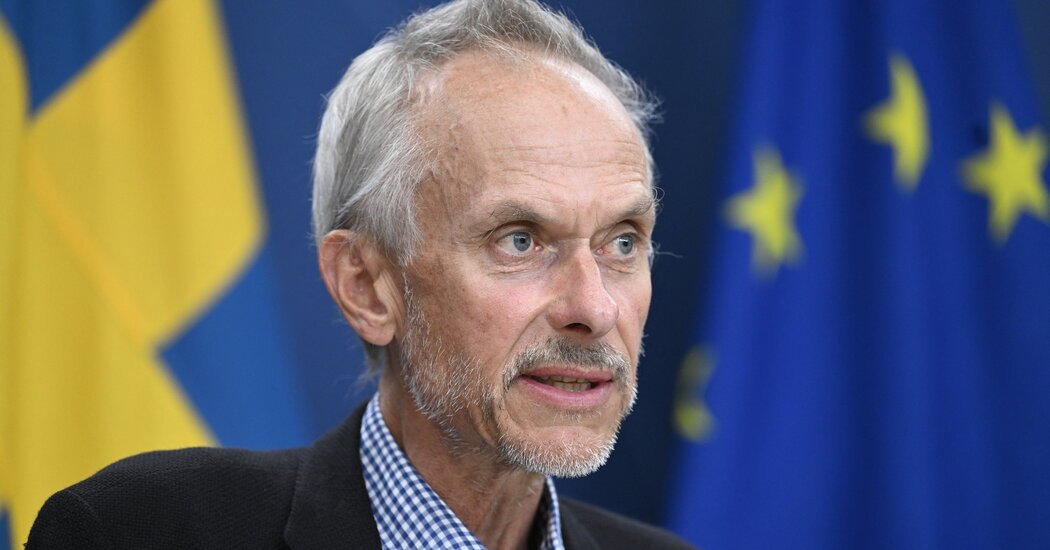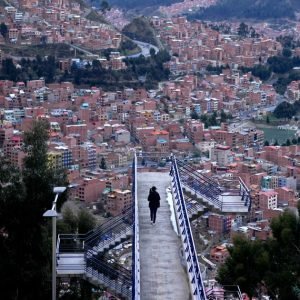
The announcement that a new version of mpox had been discovered in Sweden this week was the first indication that the disease had slipped out of Africa, where it has caused an escalating crisis in the Democratic Republic of Congo.
The announcement on Thursday about the disease formerly known as monkeypox came just a day after the World Health Organization declared a global health emergency, and it confirmed fears that a further spread was inevitable.
The person with the disease in Sweden had traveled to an area affected by the disease.
The European Center for Disease Prevention and Control said it is “highly likely” that more imported cases would be confirmed, in large part because of frequent travel between Europe and Africa. The center advised member countries to increase preparedness and to issue travel advisories recommending that people traveling to affected areas see if they are eligible for vaccination.
Pamela Rendi-Wagner, the E.C.D.C. director, warned that as long as the outbreak in Africa was not under control, cases would continue to appear in Europe and North America too.
“We have to be concerned, even outside Africa, because with the increasing number and the fast spread, the likelihood of the introduction of cases in Europe and the U.S. will increase,” Dr. Rendi-Wagner said in an interview on Friday.
The E.C.D.C. on Friday raised the risk of people in the European Union contracting the new version from “very low” to “low,” but emphasized that people traveling to and from the affected areas in Africa need to take precautions and are at a high risk.
What do we know about the case in Sweden?
The new version of the disease that is dominant in Congo is known as Clade I. The older version, a form of which caused a global outbreak in 2022, is known as Clade II. (A clade is a genetically and clinically distinct group of viruses.)
The Swedish patient was the first Clade I case diagnosed outside of Africa.
The person was quickly diagnosed, treated and isolated in the Stockholm area, while health workers began contact tracing, according to Magnus Gisslen, a state epidemiologist with the Public Health Agency of Sweden. While Dr. Gisslen said no new cases have been identified, fears of a wider transmission remain.
“People are afraid. There are flashbacks to the Covid 19 pandemic,” Dr. Gisslen said, adding that his office had fielded concerned calls from people who had planned to travel to the affected region.
Sweden, Italy and Britain have all issued public health warnings and preparedness strategies.
Is this outbreak different from the one in 2022?
The short answer is: Yes.
Dr. Paul Hunter, an epidemiologist at Norwich University in England, notes that “we’ve got two epidemics going on.”
The 2022 outbreak was driven by a version called Clade IIb, which is predominantly spread through sexual contact. Men who had sex with men proved to be the most at-risk population, but behavioral changes and vaccinations curbed the spread. New infections are still occurring, and the W.H.O. reported 100 new cases in Europe in June and 175 in the Americas.
The deadlier Clade I version has caused 15,600 infections and 537 deaths in the Democratic Republic of Congo, according to African health authorities.
Clade I is further differentiated by how it is transmitted, and who is most vulnerable. Clade Ia is spread through household contact and exposure to affected animals, in addition to sexual contact. So far, it is young children who are most vulnerable to this subtype. It is unclear if children on other continents will be as susceptible because it’s not yet certain how the children in Africa are contracting the disease.
So far, Clade Ib appears to spread mainly through heterosexual sex. Swedish doctors confirmed that the patient in Stockholm has this subtype.
Mpox may resemble ordinary respiratory illnesses at first but later manifests as a raised rash in the mouth, hands, feet or genitals. The virus spreads mainly through close contact — directly with the skin or fluids of an infected person, or with contaminated bed linens and other items.
Two doses of the mpox vaccine Jynneos, made by the Danish drugmaker Bavarian Nordic and used against the 2022 version, should protect against all versions of the virus, experts said.
As with many other infections, most people with healthy immune systems are unlikely to become severely ill with mpox.
Has this new version of mpox spread elsewhere?
So far, Sweden is the only country outside of Africa that has identified a case of the new version.
Pakistan announced a new case of mpox Thursday, but health workers were still trying to figure out which form of mpox the patient has. A senior health official in Peshawar said the infected person was a 34-year-old who had recently traveled from a Gulf state and was the first case reported in the country since the beginning of the year.
For the moment, Dr. Giovanni Rezza, Italy’s former director general for prevention, and now a public health professor at San Raffaele University in Milan, considers the latest mpox outbreak a “regional emergency” in Africa, but that other places need to prepare now.
“It’s clear that Europe needs to keep its eyes open,” Dr. Rezza said.
What can Europe do to slow the spread of Mpox?
Besides trying to stop the spread in Europe by raising awareness among health professionals, by treating patients promptly and by testing close contacts, European countries can also try to help stem the disease in Africa.
The European Union said on Wednesday that it would donate more than 175,000 doses of the mpox vaccine to countries in Africa, Bavarian Nordic will donate 40,000 doses that will be distributed by the Africa Centers for Disease Control and Prevention and the United States is donating 50,000 doses. France also said it would donate vaccine doses to the affected countries in Africa.
Apoorva Mandavilli, Emma Bubola, Zia ur-Rehman Rachel Chaundler and Ségolène Le Stradic contributed reporting.








